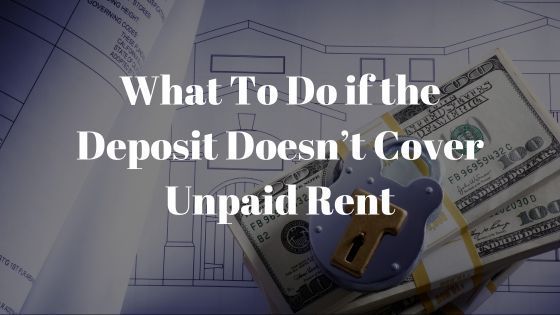
Overview of Effective Tenant Screening in Charlotte, NC
A good tenant is every landlord’s dream. With one, you can rest easy knowing that rent will be paid on time and the property will be cared for. The opposite is true with a problematic tenant. With one, you will be left wondering about the state of your investment while dealing with calls from annoyed neighbors.
That said, the challenge is that every prospective renter acts their best beforehand, especially during the initial walk-through. The only way to ensure that you are getting the right tenant for your Charlotte property is by thoroughly screening each applicant.
There are two options in this regard. The first one is to hire a professional property manager to do it on your behalf. Here, you will be relying on their skills and vast experience. The second option is to do it yourself. Here, you will be able to save money and find the tenants that you personally have approved.
If you are one that prefers the latter option, then this blog is for you. We will take you through the steps you need to follow to land a desirable tenant for your property.
Step #1: Request every applicant to complete an application form.
There are many templates available. You can use those available at On-Site or Tenant Data or get a sample from your local real estate association. You could even create your own. It’s easy. You just need to customize any of the templates available on Microsoft Office.
With the application form, your goal should be to know as much information from interested applicants as possible. Such information should include the prospective tenant’s personal, employment, and financial information.
You also want to use it to seek authorization from the tenant to run their credit, criminal, and background reports.
Step #2: Verify the applicant’s employment status and income.
It’s in your best interest to rent to a tenant that is able to pay rent on time, every time. As such, you want to contact the tenant’s employer to verify whether they have a steady, reliable income prior to them signing the lease.
You can have two options to go about this. One, you can request the tenant to provide you a copy of their recent paystub. Or two, you can contact their employer directly to find out more information yourself.
The following are some questions you can ask the applicant’s employer:
- Is the applicant a responsible employee?
- Can you verify that the applicant makes (salary amount)?
- What does the applicant do for the company?
- Can you confirm how long the tenant has worked for you?
- Is the applicant a full-time or a part-time employee?
Bear in mind that not every employer would be willing to share their employee’s private details with you. However, most (if not all) will be more than willing to confirm whether the applicant works there or not.
Step #3: Check every applicant’s background.
Looking into a tenant’s past can also help you gauge their suitability to rent your property.
A background check will enable you to get detailed reports on a tenant’s previous evictions, and criminal and credit history.
- Evictions: Steer clear of tenants that have a history of evictions. Alternatively, request the tenant to furnish you with more details.
- Criminal History: Renting to a tenant with a known criminal record can expose you and your other tenants to danger. While you can overlook a youthful indiscretion, it may be in your best interest to pass on any person with a serious or lengthy criminal history.
- Public Records: Running background checks will also enable you to find public records on a tenant. Any lawsuits against the tenant will appear here. Check for any pattern of nonpayment, for example, unpaid rent or child support.
Step #4: Review every prospective tenant’s credit report.
State laws vary when it comes to who covers the cost of ordering a background or credit check.
Checking a prospective tenant’s credit report can help you learn important financial details about a tenant, going back seven to ten years. The major national credit bureaus include TransUnion, Experian, and Equifax.
When reviewing the credit report, the following are a couple of things to pay attention to:
- Current Debt: When renting a property, you want to rent to a tenant that is comfortable paying rent. However, if you rent to a tenant that has hefty debts, chances are that they may not be able to keep up with the rent payments.
- Credit History: Here, you want to look for things like charged off credit card accounts, collection accounts, history of late payments and major issues like bankruptcy.
Step #5: Look into the applicant’s rental history.
To find information about the applicant’s rental history, you might need to contact previous landlords. The following are some of the questions you want to ask them:
- Did the applicant rent from you?
- Can you confirm that the applicant paid their rent on time?
- Did the applicant cause any negligent or careless property damage?
- Did the applicant have any problems with neighbors?
- Would you rent to the applicant again?
- Did the applicant clear utility bills before vacating?
- How many people did the applicant live within your property?
- Did the applicant provide you adequate notice prior to vacating?
- Did the applicant receive their full security deposit back? If so, why?
Step #6: Do a quick interview with the applicant.
Last but not least, interview the prospective tenant. Doing it over the phone is the best option, as you want to listen to how the tenant answers your questions. Here are some few questions you can ask them to gauge their suitability:
- Do you smoke?
- Do you plan on getting a roommate in the future?
- Do you have a pet?
The bottom line
Screening every prospective tenant is key to a successful leasing process. However, while you want to be as thorough as possible, be careful not to overstep your boundaries. Always keep the Federal Fair Housing Laws in mind.
If you have any more questions regarding the aforementioned information, don’t hesitate to contact us at Dawson Property Management today!

Dawson Property Management










